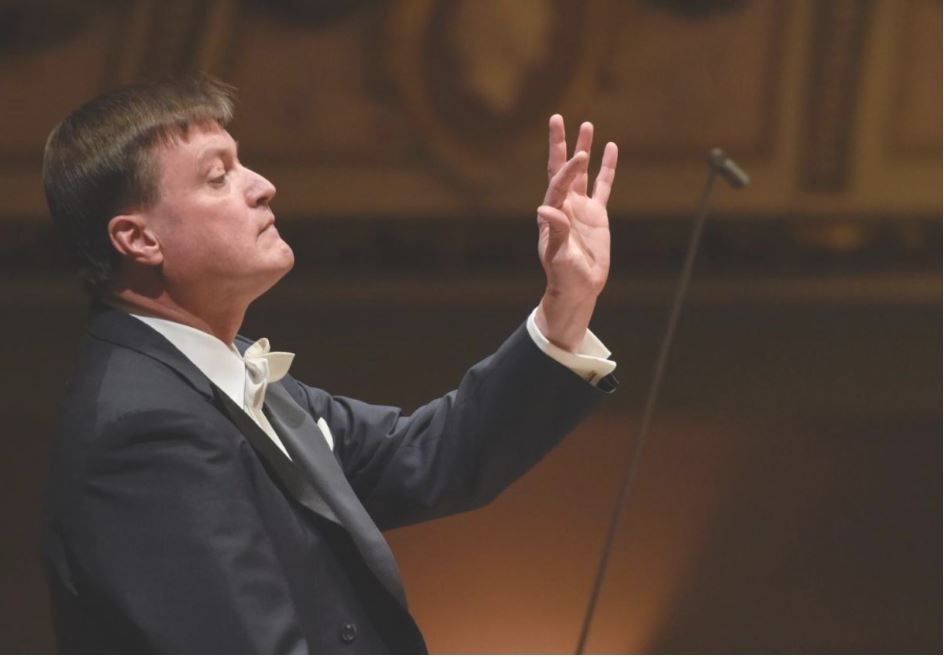If the future belongs only to streaming culture, it would undoubtedly be very sad.
Photo: © Matthias Creutziger – Christian Thielemann
by Kirsten Liese
If a film is bad, I leave the cinema early, regardless of whether the director is famous or not. Most of the time, I have a good instinct for it. It hardly ever happened that colleagues told me after a press screening that the film had gotten even better, that I had missed something. On the contrary. The other viewers almost always left the cinema at some point, only later because they still had the hope that the film would be something else. Many later regretted having wasted their precious time, others who dutifully persevered envied me for simply having taken this freedom away from me. It’s really simple: get up and leave.
For me, creeping out of a bad film in the cinema is also a metaphor for current events in the struggle for our culture. Last year, among the well-known artists, it was initially only Riccardo Muti who criticized the Europe-wide Corona measures and called for the theaters to be opened. He sent this appeal in an open letter to Prime Minister Conte at one point in time, gave speeches after his streamed concerts, most recently at the New Year’s Concert of the Vienna Philharmonic, but for a long time remained only a single caller in the desert. No sooner had Mario Draghi taken on the difficult task of forming a new government in Italy, when Muti approached him again with an open letter.
Fortunately, Muti is no longer alone. Now also has Christian Thielemann made his disappointment public that Peter Theiler, director of the Semperoper, was hindering his work and making absolutely nothing possible at his house, not even a concert or an opera performance in the stream, which many opera houses and orchestras are currently switching to. That the Sächsische Staatskapelle should not be able to do this cannot be explained. And even less that the orchestra is now not allowed to rehearse in Dresden for planned concerts at the Easter Festival in Salzburg, but has to switch to Salzburg, especially since all musicians have to be tested anyway. Muti had Beethoven’s in Salzburg that summer Ninth performed, with a large choir formation, the singers stood next to each other like pegs, everyone had been tested. At the latest then the absurdity of the measures becomes apparent: Are these PCR tests reliable now? Otherwise they would also be dispensable.
In this respect, Thielemann is absolutely right when he describes the long pause in Dresden as a “catastrophe” and sums up that more has been made possible at other houses without being able to imagine “that they acted negligently or even against the law”. Exactly, especially since, given the tried and tested “hygiene” concepts, word has long since got around that the risk of infection in theaters is extremely low.
Members of the Sächsische Staatskapelle see it similarly, at least the orchestra board member Holger Grohs, in courageous solidarity with his chief conductor, also criticized the over-cautious artistic director Theiler for preventing culture, and five musicians have taken to the labor court for their right to work and are now waiting after a dismissed complaint on their appeal negotiations in March. I keep my fingers crossed for them all!
And when I recently wrote in another classical music world that Riccardo Muti and Christian Thielemann are the best conductors we have, then it has to do with such a strong personality: standing by convictions, having a backbone, daring something.
But meanwhile the bad film has progressed so far that more and more artists dare to take cover and vent their displeasure at the shutdown of culture, including a few well-known singers such as Christian Gerhaher, Diana Damrau or Anna Prohaska, the violinist Anne-Sophie Mutter and currently also the former Berlin Senator for Culture and acting President of the Franz Liszt Academy of Music in Weimar, Christoph Stölzl.
The latter also keeps an eye on the numerous independent artists who have lost their livelihood, also due to a lack of financial aid. The majority of those affected have meanwhile had to change jobs, the “Tagesspiegel” recently reported.
“In a democracy you have to knock persistently on the door until someone opens the door – also from the state,” says Stölzl, who rightly worries that at some point in the course of weaning it could be: “Well, culture is actually just an information. I’ll get a CD with Callas, she also sings very nicely. “
Daniel Barenboim countered similar fears last year when, after his first concert with the Berlin Staatskapelle after the lockdown, with regard to the expanding streaming services, he said: “Music is created in space and not on the Internet!” Unfortunately, they only barely have that 300 people present in the audience heard. He should say that louder again.
If the future belongs only to streaming culture, it would undoubtedly be very sad.
After all, there is one good thing about the fact that the cinemas are closed: I won’t be seeing any more bad films any time soon.
Kirsten Liese, February 12, 2021, for
Klassik-begeistert.de and klassik-begeistert.at
MeetYourMaster, learn to sing with Jonas Kaufmann klassik-begeistert.de
<iframe class="wp-embedded-content" sandbox="allow-scripts" security="restricted" style="position: absolute; clip: rect(1px, 1px, 1px, 1px);" title="„MeetYourMaster, Singen lernen mit Jonas Kaufmann
Klassik-begeistert.de “- Classic inspires” src = “https://klassik-begeistert.de/meetyourmaster-singen-lernen-mit-jonas-kaufmann-klassik-begeistert-de/embed/#?secret=m68Txp2GsX” data -secret = “m68Txp2GsX” width = “600” height = “338” frameborder = “0” marginwidth = “0” marginheight = “0” scrolling = “no”>
Ms. Lange listens (23): Spa concert with mother-in-law flatterer
Lieses Klassikwelt 57: Catarina Ligendza
Lieses Klassikwelt (c) appears every Friday.
Spelzhaus Spezial (c) appears every second Saturday.
Der Schlauberger (c) appears every Sunday.
Ritterbands Klassikwelt (c) appears every second Sunday.
Poser’s Klassikwelt (c) appears every second Sunday.
Ladas Klassikwelt (c) appears every Monday.
Ms. Lange listens (c) appears every second Tuesday.
Schweitzer’s Klassikwelt (c) appears every second Tuesday.
Sommeregger’s Klassikwelt (c) appears every Wednesday.
Hauter’s in-house mail (c) appears every second Thursday.
Radek, scarce (c) appears every second Thursday.
Born in Berlin, Kirsten Liese (born 1964) discovered her love for opera at the age of eight. In the then still divided city, she was at the Deutsche Oper Berlin three to four times a week – she was particularly impressed by the Da Ponte operas by Mozart and the musical dramas by Richard Strauss and Richard Wagner. Other favorite composers are Bruckner, Beethoven, Brahms, Schubert and Verdi. Her favorite operas were “Der Rosenkavalier”, “Die Meistersinger von Nürnberg”, “Tristan und Isolde” and “Le nozze di Figaro”. A “Don Carlos” performance in Salzburg in 1976 under Herbert von Karajan with Freni, Ghiaurov, Cossotto and Carreras is also unforgettable. She later studied school music and German and sat in on numerous radio editors. Since 1994 she has worked as a freelance opera, concert and film critic for numerous radio programs of the ARD as well as newspapers and magazines such as “Das Orchester”, “Orpheus”, the “Ray Filmmagazin” or the Kölner Stadtanzeiger. Numerous reports and also jury activities lead Kirsten increasingly abroad (Salzburg Easter Festival, Salzburg Festival, Bayreuth Festival, Ravenna Festival, Lucerne Festival, Riccardo Muti’s Opera Academy in Ravenna, La Scala in Milan, Vienna State Opera). As a journalist, she was able to meet numerous great singers and famous conductors in sometimes very personal, friendly conversations, including Dietrich Fischer-Dieskau, Elisabeth Schwarzkopf, Mirella Freni, Christa Ludwig, Catarina Ligendza, Sena Jurinac, Gundula Janowitz, Edda Moser, Dame Gwyneth Jones, Christian Thielemann, Riccardo Muti, Piotr Beczala, Diana Damrau and Sonya Yoncheva. Kirsten’s lighthouses are Wilhelm Furtwängler, Sergiu Celibidache, Riccardo Muti and Christian Thielemann. Kirsten has been an author for klassik-begeistert.de since 2018.
–

